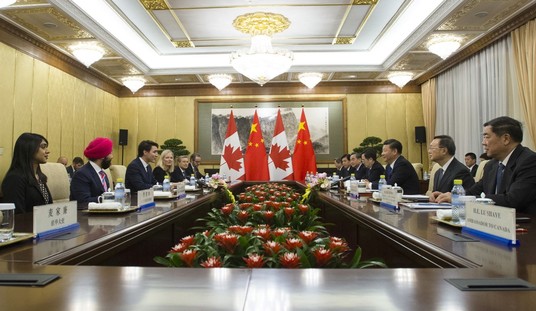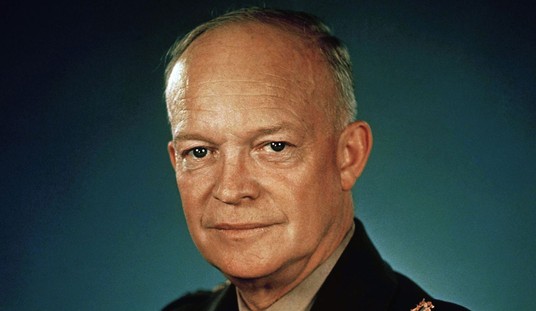
If the Caliphate/IS had been given the opportunity to choose their adversaries, they couldn’t have chosen better than Iraq, Iran, and the United States. We have a triple update for you this afternoon, starting with the NYT:
As Iraq’s deadlocked Parliament was again unable to reach a deal to name a new speaker on Sunday, Sunni militants carried out a raid near Baghdad, a symbolically significant attack signaling their intent to move closer, even if only by a few miles, toward the Iraqi capital.
Although the pretext for the delay was a severe sandstorm that prevented northern Iraq’s Kurdish lawmakers from flying to Baghdad, the real reason appeared to be that last-minute deals between the largest Shiite bloc and the Sunnis were falling apart.
This is akin to fighting over the deck chairs on the Titanic, or maybe getting into dueling fiddles with Nero while Rome burns. But if Iraq remains divided politically, at least the military is… infiltrated. From Fox News:
A Pentagon draft assessment of Iraq’s security forces has concluded that only approximately half of the country’s military units are capable of being advised by American commandos, and many units have been infiltrated by either Sunni insurgent informants or Shiite militia members backed by Iran, according to a published report.
The New York Times reported that the assessment warns that Iraqi forces loyal to embattled Prime Minister Nouri al-Maliki are so dependent on the Shiite militias, as well as advisers from Iran’s paramilitary Quds Force that American advisers could face safety risks if they are assigned to train certain units.
Does that make Iran the dominant player in Iraq? (Hasn’t it been since we pulled out in 2011? –ed.) Maybe not, if this CSM analysis is on the rial:
Iran, like the US, is struggling to determine the best course of action in Iraq. The Sunni militants’ declaration of an Islamic caliphate over swathes of Syria and Iraq – along with its ambitions to expand from Algeria to Pakistan – prompted Iran to send advisors and military hardware to Baghdad.
But Tehran is leery of deeper entanglement, particularly if it entails a de-facto alliance with the US. And it seems unsure what its end goal should be.
“The Iranians are faced with the same dilemma that the Americans are in Iraq, precisely because the Iraqi political dynamic is independent,” says Farideh Farhi, an Iran expert at the University of Hawaii now in Tehran. “Should they push Maliki out, or should they try to convince him to be much more inclusive?”
Let’s just say I’m not feeling oodles of empathy for Tehran right now, even though the prospect of a real Caliphate is even more unpleasant than the reality of Islamist Iran. Iran pretty much has to protect its Shi’a brethren in Iraq from the Sunni Caliphate/IS, but the Arab/Persian ethnic divide remains stronger than Shi’a unity — and always will.
Well, they wanted to be a regional power — and now they are one.
Is there a Farsi idiom to match “Be careful what you wish for?”










Join the conversation as a VIP Member